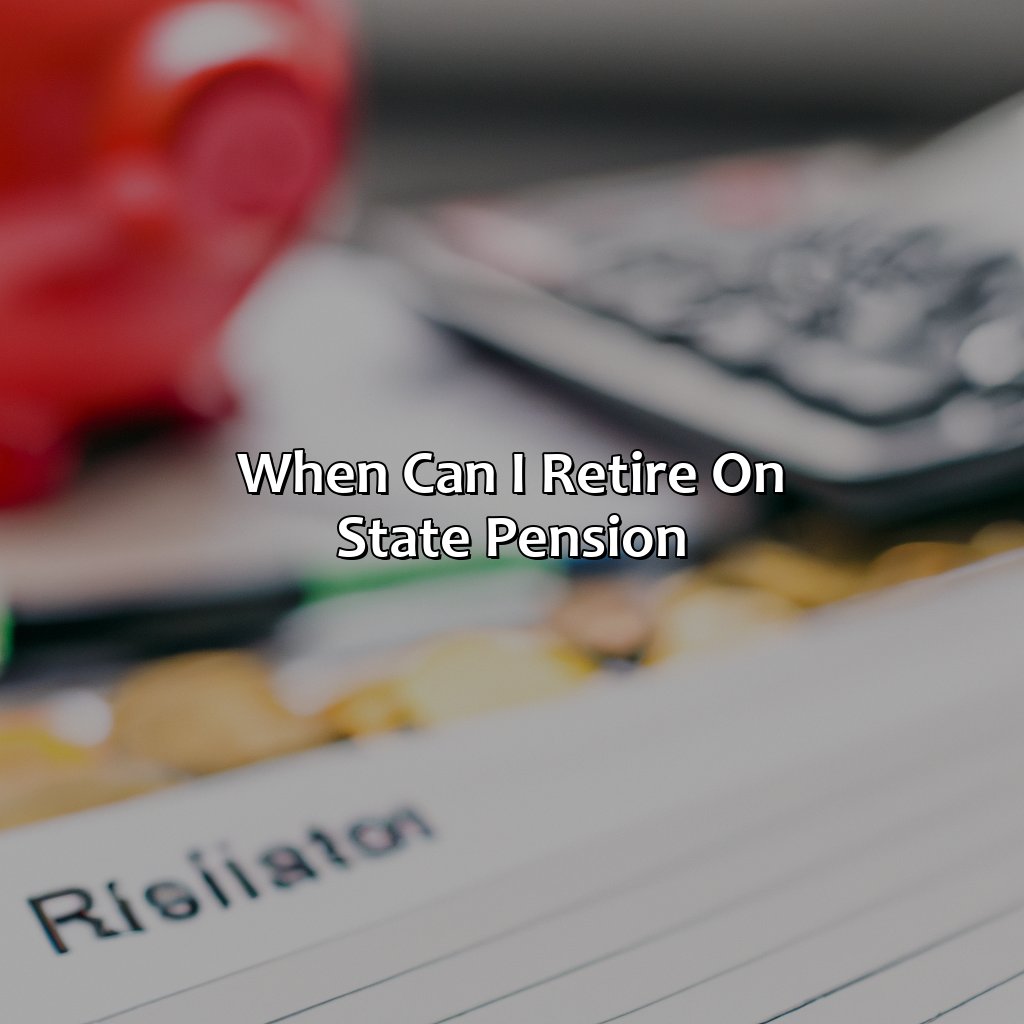When Can I Retire On State Pension?
Key Takeaway:
- Eligibility for state pension depends on your National Insurance contributions and age. To qualify for the basic State Pension, you need to have paid at least 10 years of National Insurance contributions. You will need 35 years of contributions to qualify for the full State Pension.
- The age requirement for State Pension has recently changed, with an increase to 66 years old for everyone by October 2020. By 2028, the State Pension age will be increased to age 67 for everyone.
- The amount of State Pension payment you can receive depends on your National Insurance record and the number of qualifying years. The full State Pension currently stands at 179.60 per week.
- To check your State Pension age, you can use the government’s online tool or contact the Future Pension Centre. You can also request a State Pension statement to receive an estimate of your future payments.
- If you delay State Pension payments, you can increase your payments by up to 1% for every nine weeks that you delay. You can also postpone your payments to receive a lump sum payment instead.
- To claim State Pension, you can apply online, over the phone, or by post. You will need to provide your National Insurance number, birth and address details, and bank account information.
- You may have additional pension options, such as workplace pensions, personal pensions, and savings accounts. It is important to consider all options to ensure a comfortable retirement income.
- To calculate your retirement income, you can use pension calculators, seek advice from a financial advisor, and consider any other savings or investments you may have.
- In conclusion, planning for retirement and understanding your State Pension options is crucial for financial security in later life. Check your eligibility, age requirement, payment amounts, and additional options to make informed decisions about your retirement income.
Are you looking to retire and wondering when you can start claiming your state pension? This article offers essential advice to help you plan your retirement and enjoy a financially secure future. You will learn the key factors to consider when deciding when is the right time to retire and start claiming your state pension.
Eligibility for State Pension
When Can You Claim Your State Pension?
To receive your State Pension, you must have reached the State Pension age. The State Pension age is currently 66 for both men and women, and it is gradually increasing to 67 between 2026 and 2028. If you’re wondering when should you apply for old age pension, it’s important to keep the increasing age in mind. The State Pension age is under review and may increase further in the future.
To be eligible, you must also have paid enough National Insurance contributions (NICs), or receive NIC credits, which can happen if you are a carer or have young children. You need to have at least ten qualifying years of NICs or credits to receive any State Pension, and at least 35 years for the full amount.
If you’re wondering when does the state pension increase, you can find more information on that as well.
It is important to note that any NICs that you paid before 6 April 2016 may not count towards your State Pension entitlement. Instead, they may count toward a basic State Pension or Additional State Pension.
A common misconception is that the State Pension age for men and women is still different, but this was equalised in 2018. Prior to this, women received their State Pension at 60 while men had to wait until they were 65.
If you’re wondering when can I get my State Pension, this website has all the information you need.
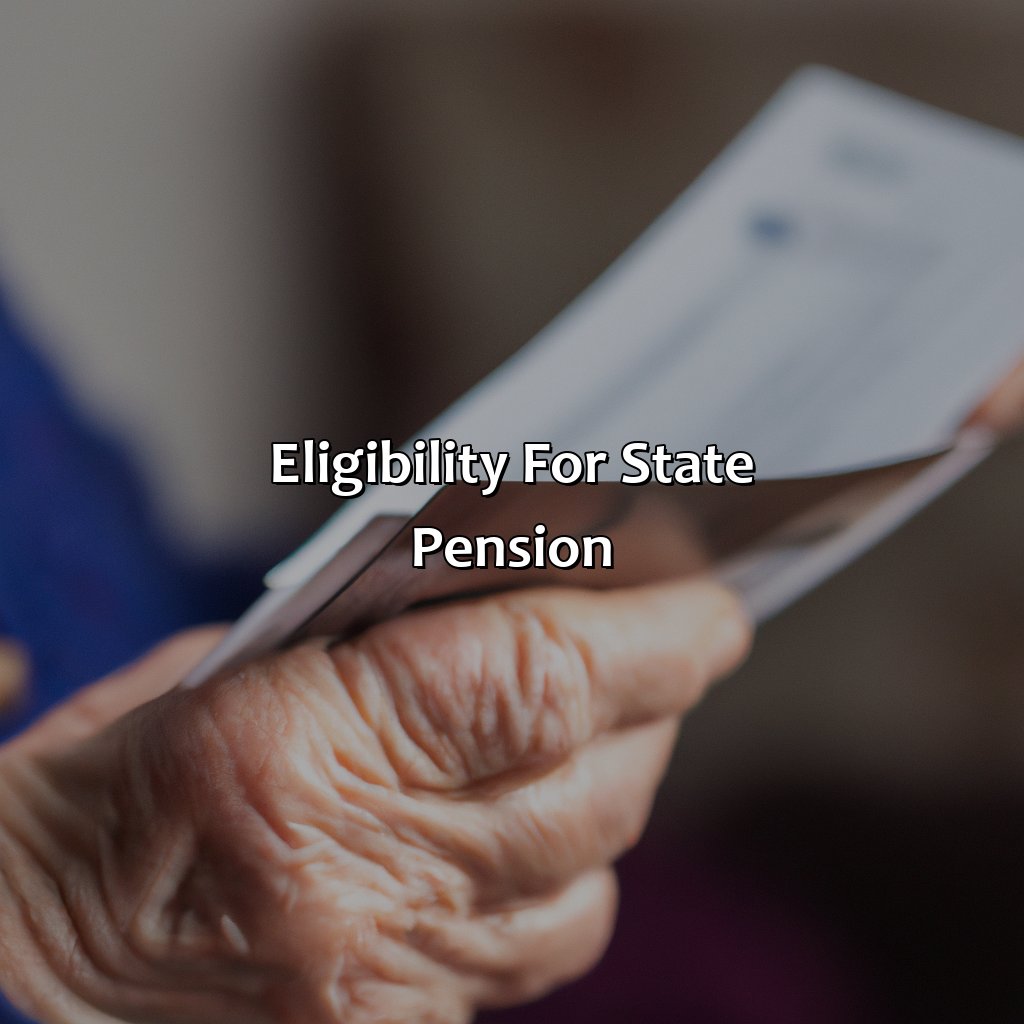
Image credits: retiregenz.com by Adam Jones
Age Requirement for State Pension
The eligibility age for State Pension
Individuals in the United Kingdom need to reach a specific age to qualify for State Pension. The age requirement for State Pension eligibility is based on an individual’s gender and date of birth. Men born before 6 April 1951 need to be aged 65, whereas women born before 6 April 1950 are entitled to the State Pension at 60. Those born between 6 April 1950 and 5 December 1953 have varying ages of eligibility. For individuals born after 5 December 1953, the age requirement for State Pension availability is increasing gradually, reaching 68 for both men and women.
Additionally, it’s important to note that individuals must have paid or been credited with National Insurance contributions for at least 10 qualifying years to be eligible for any UK State Pension. Furthermore, in order to receive the full amount of State Pension, individuals will need at least 35 qualifying years of National Insurance contributions.
Don’t miss out on your rightful pension. Make sure you are aware of the eligibility criteria and the necessary steps to receive your State Pension at the earliest possible age. The fear of missing out on State Pension entitlement can be detrimental to your retirement planning. Be proactive and seek advice to ensure you receive the maximum benefit you deserve.
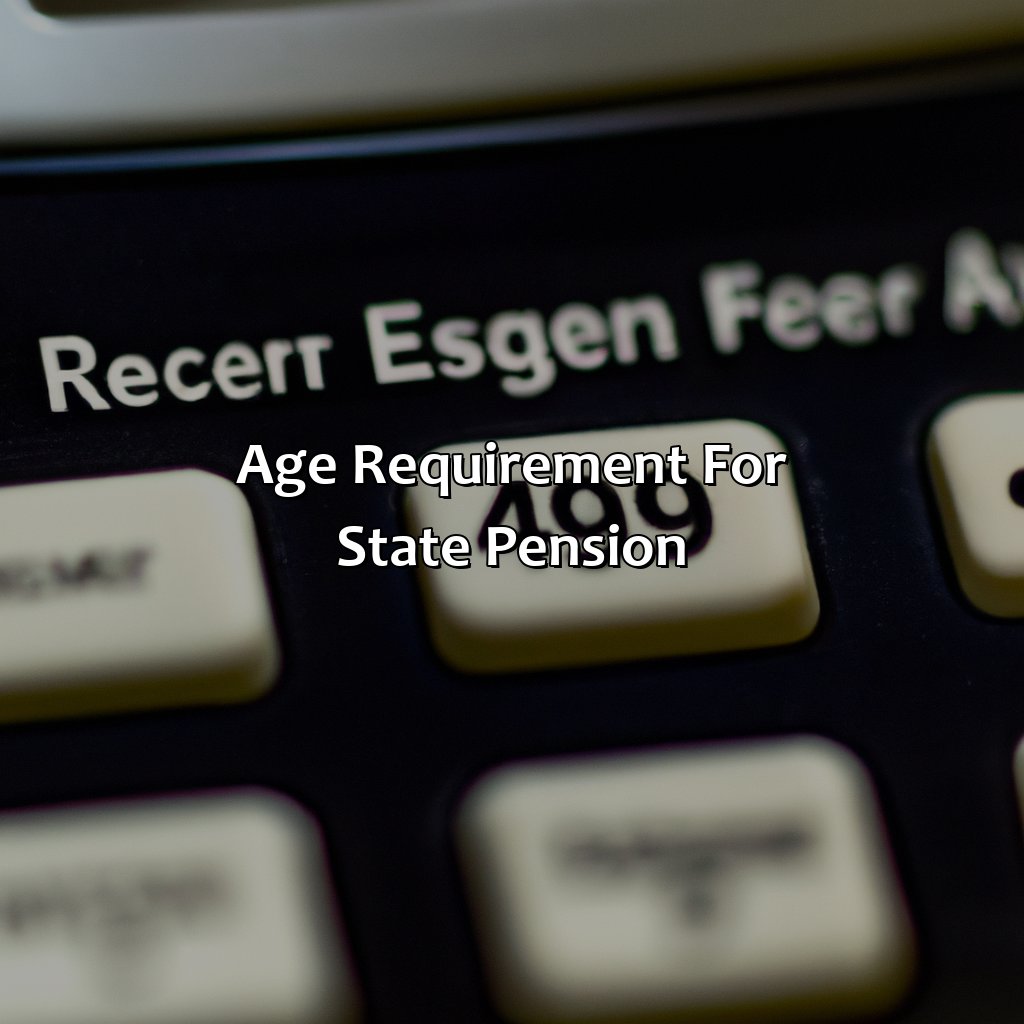
Image credits: retiregenz.com by David Arnold
Amount of State Pension Payment
The State Pension Payment amount is a crucial factor to consider while planning for retirement. It is the monthly income paid to individuals who have reached the state pension age and have made the required National Insurance contributions.
Below is a representation of the State Pension Payment amount based on the individual’s retirement year:
| Retirement Year | Weekly Amount |
|---|---|
| 2021 – 2022 | 179.60 |
| 2020 – 2021 | 175.20 |
| 2019 – 2020 | 168.60 |
Please note that the amount may vary based on the individual’s National Insurance contributions.
It is worth mentioning that when you will receive your State Pension may vary depending on different factors. The State Pension Payment amount increases every year, by either inflation, earnings, or a minimum of 2.5%. Moreover, some individuals may be eligible for an additional State Pension (also known as the Second State Pension or SERPS) based on their employment history.
Don’t miss out on planning for your retirement and securing your State Pension Payment. Check your eligibility and keep track of any changes in the payment amount to ensure a comfortable retirement.
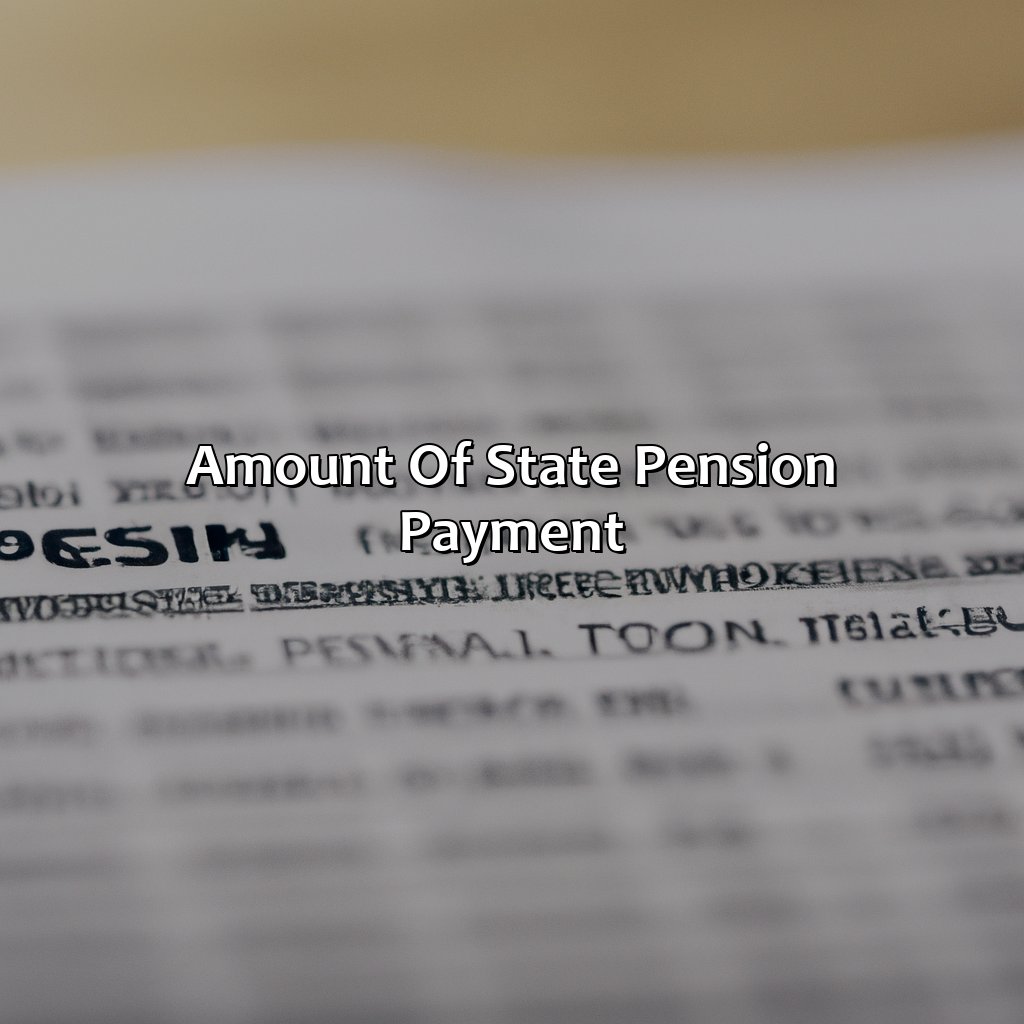
Image credits: retiregenz.com by James Jones
How to Check State Pension Age
To determine your eligibility for receiving state pension, it is essential to know when you can retire on state pension. Understanding the state pension age is crucial.
Here is a six-step guide to help you check your state pension age:
- Visit the government’s official website for state pension age.
- Enter your date of birth to the state pension age calculator.
- Confirm that the date of birth registered is correct.
- Review your state pension age, which was calculated.
- Check if you need to make additional national insurance contributions to increase the available state pension amount.
- Create an account with the government website to track your status and eligibility for a category A state retirement pension.
The calculation of your state pension age is based on several factors, such as your date of birth, gender, marital status, and national insurance contributions. Knowing all these factors can help you make informed financial decisions for the future.
In the past, the state pension age for men was 65 years and for women, it was 60 years. However, with the introduction of new legislation, the state pension age for both men and women has changed. Currently, the state pension age is 66 years for both genders, and it will rise to 67 years by 2028.
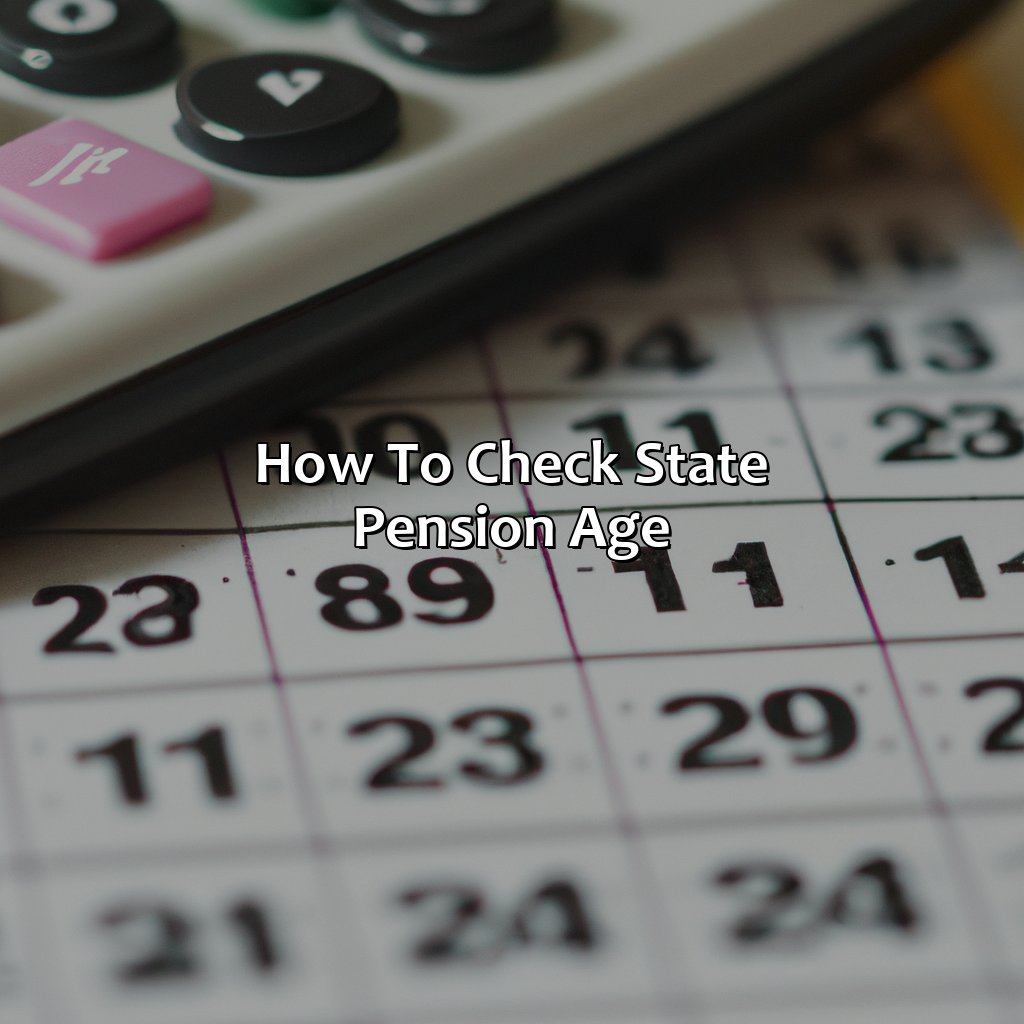
Image credits: retiregenz.com by Yuval Washington
Delaying State Pension Payments
When choosing to defer one’s State Pension due to reasons such as wanting to increase the amount it pays out, it’s important to know when such delay is possible. The rules state that deferring the pension can be done by the recipient when they reach their State Pension age. They can also opt to defer once they start to receive payments, which can increase the amount and be offered as a lump sum or as additional pension payments.
Assuming that a person chooses to defer their pension, an important point to consider is how long the deferral can last. A person may defer their payments for as long as they like, and doing so can result in an increase in payments of one percent for every nine weeks deferred. Based on the time of the year, deferring the payments for one year can yield an increase of approximately 5.8 percent.
Pro Tip: Deferring State Pension payments can be a good financial strategy, especially for those who have resources or income from other sources to cover their living expenses.
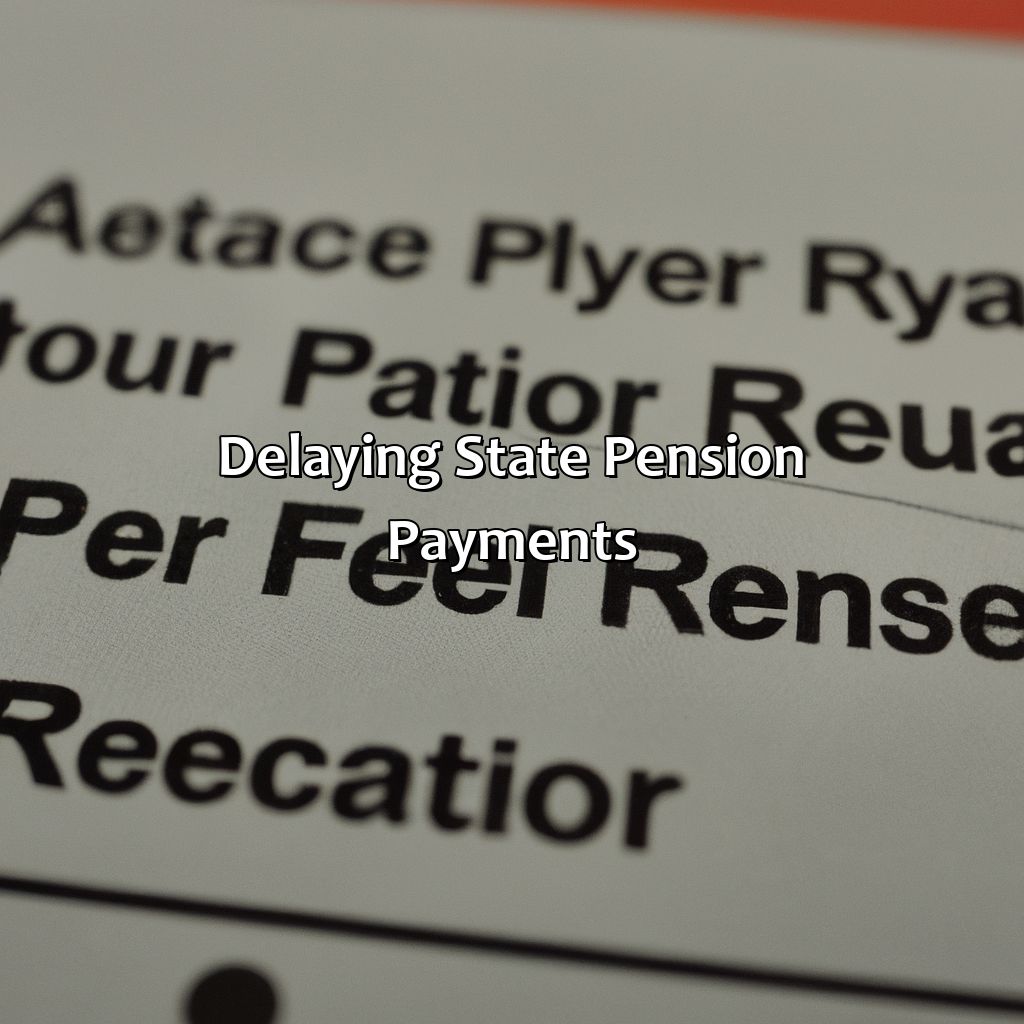
Image credits: retiregenz.com by Joel Washington
Claiming State Pension
At what age can you access your state pension? State pension eligibility is determined by your birth date. For those born before April 6th, 1951, state pension eligibility age is 65; for those born on or after this date, the age is gradually increasing, reaching 66 for those born between April 6th, 1955 and May 5th, 1955.
To claim your state pension, you will need to know how to get a pension by paying a minimum of 10 years of National Insurance contributions. If you have less than 10 years, you will not be eligible for the state pension. If you have between 10 and 35 years, you will be eligible for a reduced state pension. Additionally, if you have more than 35 years of contributions, you may be eligible for an increased state pension.
It is also worth noting that state pension is taxable income. In 2021, the full state pension is 179.60 per week. However, the actual amount you receive could be more or less depending on your National Insurance contributions and any additional pension income that you may have. According to the Gov.uk website, “You can get a State Pension statement online that gives you an estimate of how much basic State Pension you may get, based on your National Insurance contribution records to date.”

Image credits: retiregenz.com by Joel Jones
Additional Pension Options
Potential Supplementary Retirement Income Sources
Aside from receiving state pension payments, there are various other avenues to explore for additional retirement income. Have you ever wondered what does opting out of state pension mean?
Diversified Retirement Income Streams
To diversify your retirement income streams, several options could be explored, including personal pensions, workplace pensions, savings accounts, and investments such as stocks, shares or property. Each of these options has varying degrees of risk, and if you’re wondering how to apply for widows pension, it is essential to research each thoroughly.
Importance of Pension Planning
Planning your retirement pension as early as possible can help secure a comfortable retirement plan. Take advantage of free pension advice options available. Learn about the particular rules and regulations that apply to different types of pensions. If you’re wondering how to retire without a pension, there are other retirement options available that you can explore.
Additional Suggestions for Retirement Income
In addition to the previously mentioned options, downsizing your home, continuing to work part-time or freelance can also provide supplementary retirement income. It’s crucial to consider all your options and seek independent financial advice before deciding.
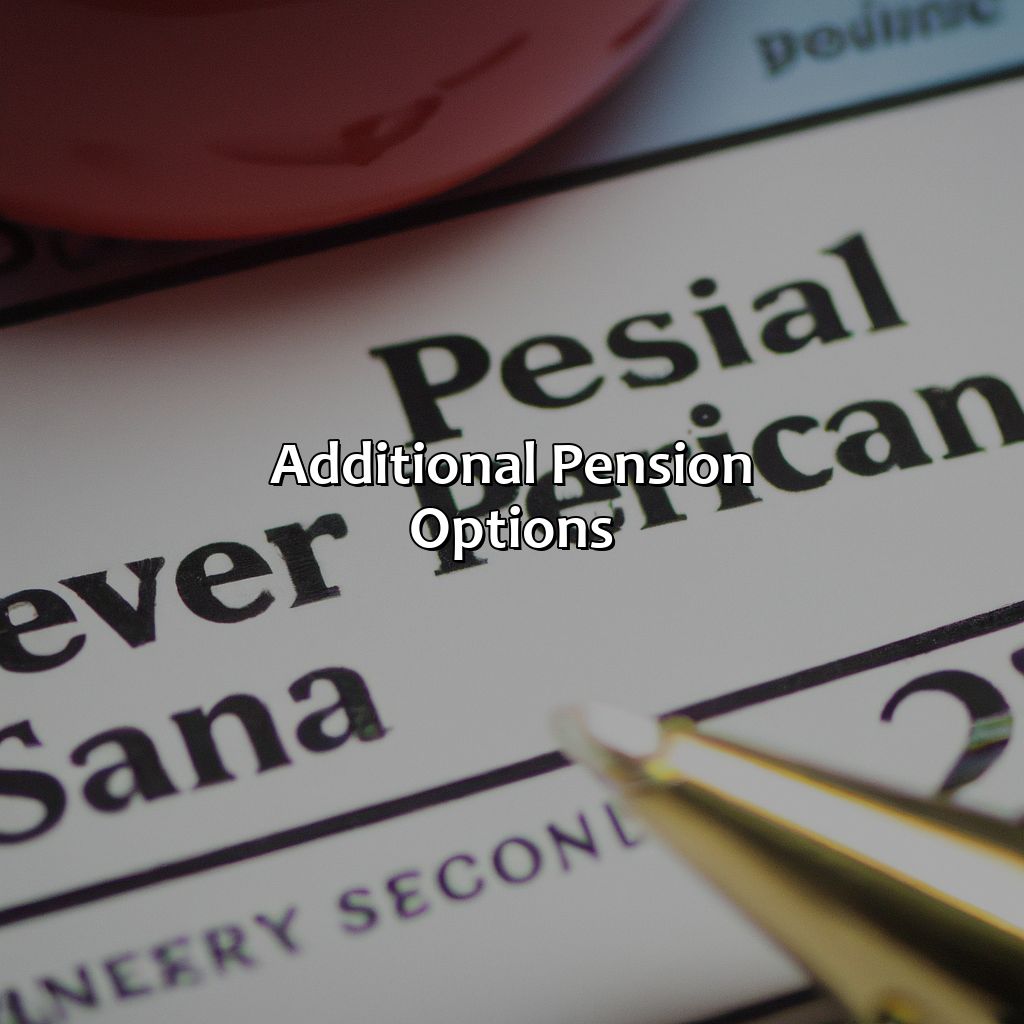
Image credits: retiregenz.com by Adam Jones
Calculating Retirement Income
To accurately determine the retirement income, it is essential to calculate it based on various factors, including social security benefits, pensions, savings, and investment income. By considering the net worth, current expenses, and the desired standard of living in retirement, one can determine the amount required to retire comfortably. Additionally, reviewing the estimated expenses, such as healthcare, taxes, and inflation, before and after retirement also helps in accurate calculations.
When calculating retirement income, some may also choose to consult financial advisers and utilize various retirement income calculators available online. However, it is important to note that such calculators may not consider individual circumstances and needs.
Pro Tip: It is recommended to periodically review and adjust the retirement income plan as circumstances and costs may change over time.
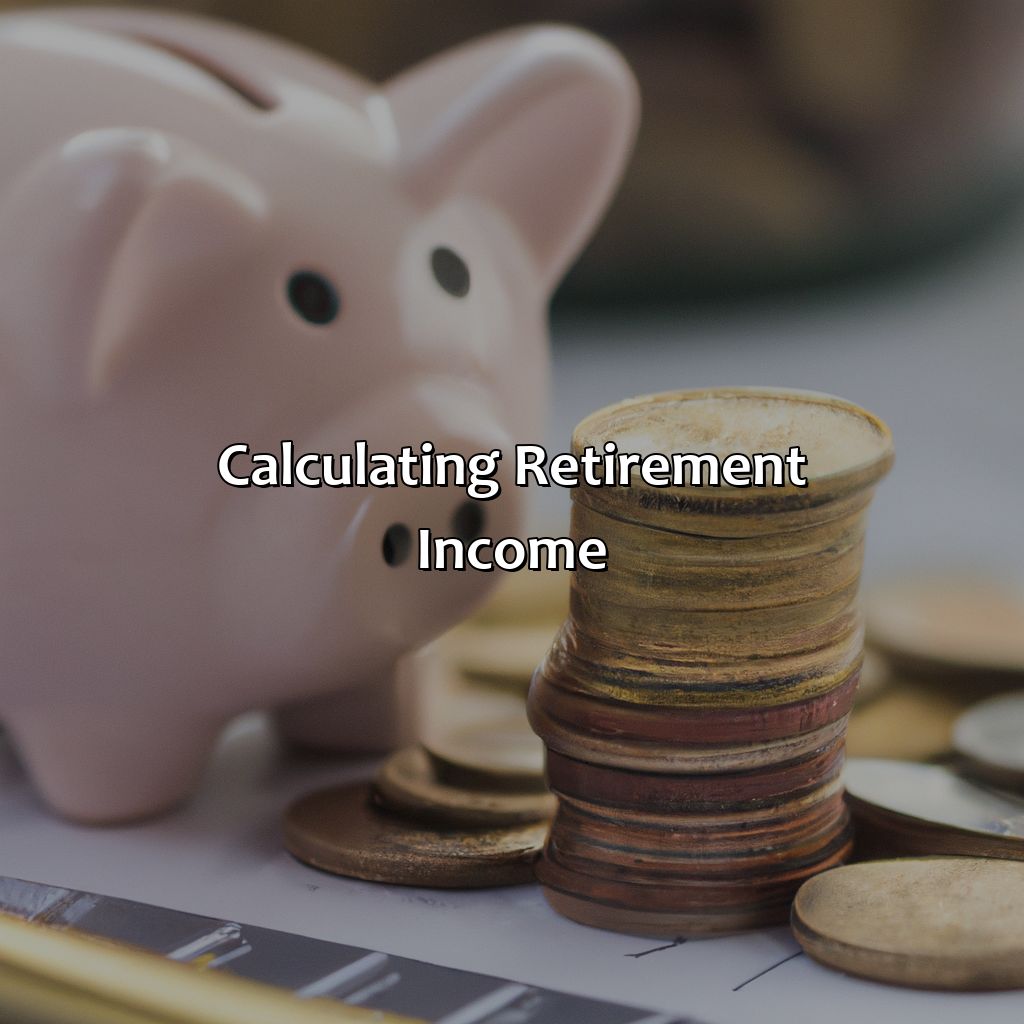
Image credits: retiregenz.com by James Woodhock
Five Facts About When Can I Retire on State Pension:
The state pension age in the UK is currently 66 years old for both men and women and is set to rise to 67 by 2028. (Source: GOV.UK)
To qualify for the full state pension, you need to have paid National Insurance contributions for at least 35 years. (Source: Money Advice Service)
The average state pension payment in the UK is 179.60 per week. (Source: Money Saving Expert)
You can defer taking your state pension to receive a higher weekly payment later on. (Source: Which?)
You can use an online calculator to estimate how much state pension you are entitled to and what age you can start claiming it. (Source: The Pension Service)
FAQs about When Can I Retire On State Pension?
When can I retire on state pension?
State pension age depends on your date of birth – it’s gradually increasing for both men and women to reach 68.
What’s the current state pension age?
The current state pension age is 66 for both men and women. It’s gradually increasing and will reach 67 by 2028.
Can I check my state pension age?
Yes, you can check your state pension age online on the government website using your national insurance number.
How much will I get when I retire on state pension?
The amount you receive on state pension depends on your national insurance contributions. The maximum amount you can get is currently 175.20 per week.
Can I get a forecast of my state pension?
Yes, you can get a forecast of your state pension online on the government website. The forecast will give you an estimate of how much you could get and when you can claim it.
What if I have gaps in my national insurance record?
If you have gaps in your national insurance record, you may be able to pay voluntary contributions to fill them in. This could increase your state pension amount.
 Checkout this IRS Loophole
Checkout this IRS Loophole 
